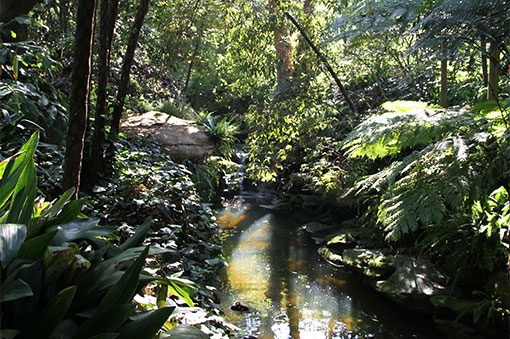Out of ourselves, away from it all and into another world
(This post supplements material in Chapter 8 of ‘Connect with Nature’.) Michael Portillo is probably best known for his TV documentaries on railway journeys, but Australia’s SBS network is currently screening a series recording a walking trip he did in Devon and Cornwall. In contrast to his upbeat railway documentaries, this series is more personal, introspective and reflective.
After two years confined to city life, some of it under COVID restrictions, he felt a strong need to spend time in nature. By his own admission he is a thoroughly urban creature. Nevertheless, he chose to undertake a ‘nature challenge’ – to walk along the physically demanding but stunningly beautiful track that skirts the coastline of Devon and Cornwall. The weather along the track can range from Gulf Stream balmy to Atlantic tempest, as Portillo himself discovered. He certainly needed his waterproofed jacket and hat.
The fact that he had at least a camera operator for company and a production team in support reduces the authenticity of Portillo’s experience. But there is no reason to doubt the genuineness of the joy and awe he experienced and the sincerity of his thoughts about the power of nature to inspire, heal and restore.
Countless others have benefited from this power. It is one of the greatest, if neglected, resources of life.
Science has given us a picture of the kinds of natural environments that are best for restoring jaded minds and emotions. First and foremost, they are environments that enthral us – that command our attention, delight our senses and excite such emotions as joy, awe, wonder, calmness, and tranquillity Such environments take us ‘out of ourselves’, giving us a feeling of being ‘away from it all’ and in a ‘whole other world’. This can be a challenging space but one where we can extend and enrich ourselves in the way we want to.
Such a space enables us to switch off from the everyday world and to open ourselves fully to nature’s rejuvenating embrace.
Michael Portillo travelled several hundred miles to find a space of this kind. But it is possible to get away from it all and to be in a whole other world within domesticated (or urban) nature. We can feel or sense that we are away from it all and in a whole new world even if the familiar world is physically nearby (just like the spot in this photo, which is surrounded by suburbia) .
What matters is that the setting seems genuinely natural and free of reminders about the outside world. This allows everyday concerns, responsibilities and routines to be left behind.
The time spent in the setting can also vary – from days and even weeks to just a few minutes. ‘Being away from it all’ is a matter of the mind rather than of time and distance.
Being away, moreover, is not simply a matter of escaping physically. We can be in a totally different and remote environment and still be encumbered by everyday concerns and obligations. Healing and restoration are unlikely under these conditions. As far as finding remoteness is concerned, what we leave behind or get away from is every bit as important as where we get away to.
The familiar adage, ‘change is as good as a holiday’ tells us that being somewhere different from our usual haunts can be restful and refreshing. A restorative environment gives us this sense of being somewhere different. It takes us to a ‘whole other world’ where our minds are pleasantly distracted from the burdening tasks of ordinary life and the temptation to ruminate unhelpfully about our concerns and anxieties.
Environments that do this need not be large tracts of natural landscapes like those on the Devon and Cornish coastline. Other settings can provide a sense of being part of ‘something bigger’ and in a world apart. The ‘bigness’ need not be physical. It can be, and often is, a bigness that exists in the mind rather than reality. Many small settings, a Japanese garden, for example, a landscaped park or a patch of urban bushland can suggest the bigness of a whole other world and so provide an oasis of respite for jaded minds and fragile emotions.

